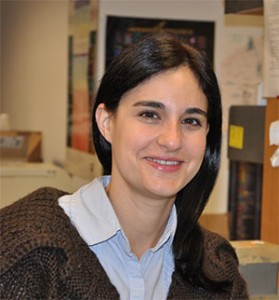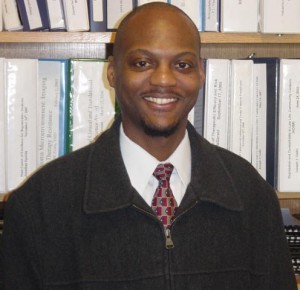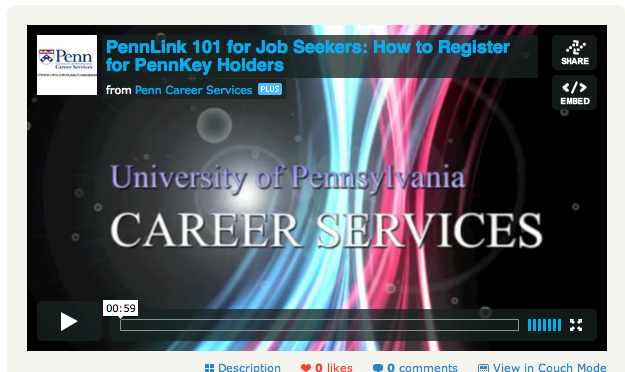Dr. Joseph Barber
I have always enjoyed working in fields that include a lot of gray areas — those nebulous, intangible zones between something being absolutely correct and being incorrect. After all, if there is a singular right and wrong answer, it means you have much less room for creativity or flexibility — and I like thinking creatively. Career advising is one of these gray-area fields because one’s future career path is not predetermined.
That means that whenever someone meets with me looking for absolute clarity on their next career move, they are probably not going to leave my office with a singular answer. Instead, I’ll suggest a series of action steps that they can take to build confidence in the answers that they’ll discover on their own through a variety of different networking and exploration processes. I recognize, however, that when you want easy answers, receiving a “series of action steps that you can take to build confidence in the answers that you will discover on your own through a variety of different networking and exploration processes” doesn’t always feel so satisfying.
All that said, even within the field of career advising, you can, in fact, take certain actions that have very predictable outcomes. And it is worth thinking about some of these as illustrations of what career certainties can look like.
Writing generic applications. You unquestionably won’t get 50 job interviews if you send 50 versions of the same résumé with a cover letter that only differs because you remembered to change the name of the employer in the text (but not always in the file name of the attached document — oops!). You can find out why here, but you can probably guess that 50 different hiring managers at 50 different companies are each looking for something specific to their needs and interests. Generic applications certainly won’t interest people — and even more certainly, they won’t impress companies’ tracking software that scans applications to see if they match keywords in the job description. The robots like relevant keywords, and they are not so good at reading between the lines.
Downplaying your expertise. If you don’t apply for a job because you personally think you might not have enough experience for it — if they are asking for, say, three to four years of using a set of skills and perhaps you only have one — then you definitely won’t get an interview. If you write in a cover letter, “Although I don’t have the three to four years of experience you are seeking, I do have …” they will certainly agree with your lack of experience and probably won’t see what you do have.
But if you describe your actual experience, and tell them in words they are familiar with based on your research into the field and the many informational interviews you’ve had, you will make a much better impression. You can never be absolutely sure what a hiring manager is actually looking for in a new hire, so let them be the judge of your experience. They may see potential in your background that you can’t see from your perspective.
Raising no interview questions. If you don’t have questions at the end of a job interview, you are most assuredly increasing the chances you won’t be asked back for another one, much less given an offer. If you are uncertain why, then read this.
Predicting when job offers will come in. When you receive multiple job offers, you will probably never be able to get them all to line up at the same time so that you can choose between them — no matter how well you negotiate or stall for more time. And just as it seems that buttered bread always lands butter side down when dropped, it can certainly feel like offers from less preferred employers always come first. They also have more immediate turnaround times than offers from the employers you really want. I have met with many students and postdocs who have an offer on the table from a less preferred employer that will probably expire before they can even complete the interviewing process for a more preferred one. No one can know for sure what will happen in the future if that first offer is turned down or accepted.
Not negotiating. You will certainly regret not negotiating. You may not feel it all at once in the glow of receiving and immediately accepting a job offer, but over time, you will increasingly wish you had asked for something. You don’t have to negotiate for much to feel satisfied that you have advocated for yourself. A small salary increase, a reduction in your teaching load for a couple of years or priority access to your new employer’s day-care facilities can all make a meaningful contribution to how you feel. But you should always negotiate positively — and do so as confidently as possible.
Questioning your decisions. You will always look for career certainty as you make your decisions. But in most situations, once you make a choice, you will remain a little in doubt about your future career prospects. Will your decision get you closer to your dream job or employer, or will it take you down a path that will lead you away from it? You can never tell for sure.
The thing about career uncertainty is that it actually exists no matter what choice you make. And while that may sound a little scary, if we flip the narrative around, it means that there aren’t really any wrong choices. You will have to make many different choices. Some will be strategic ones that move you toward some future career goal, some will be more immediate to address a crucial need (e.g., financial) and some will be less about the work and more about your family or personal well-being.
Each is valid in its own way. As long as you have given thought to why you have made the choice and are committed to making the most of the situation, you can continue to leverage the experience you gain in any role for whatever future career move you choose to make.
Here are five steps that I would certainly recommend once you have made a career choice in order to feel satisfied that you can make the most out of it:
- Thank everyone who has helped in your job search, especially your references.
- Take advantage of any training or mentoring available in your new role.
- Make a concerted effort to grow your network within your new employer, as well as within the employers’ broader professional industry.
- Identify new skills or knowledge you can gain in your new role that you didn’t have before.
- After you have settled into the new role, begin to think about the different career steps you can take next, and what you will need to do for each of them.
You can always learn from the past decisions you have made. But rather than second-guessing a previous career choice, invest your energy in developing a forward-looking strategy that will help you be as informed and confident as possible when taking the next step.





